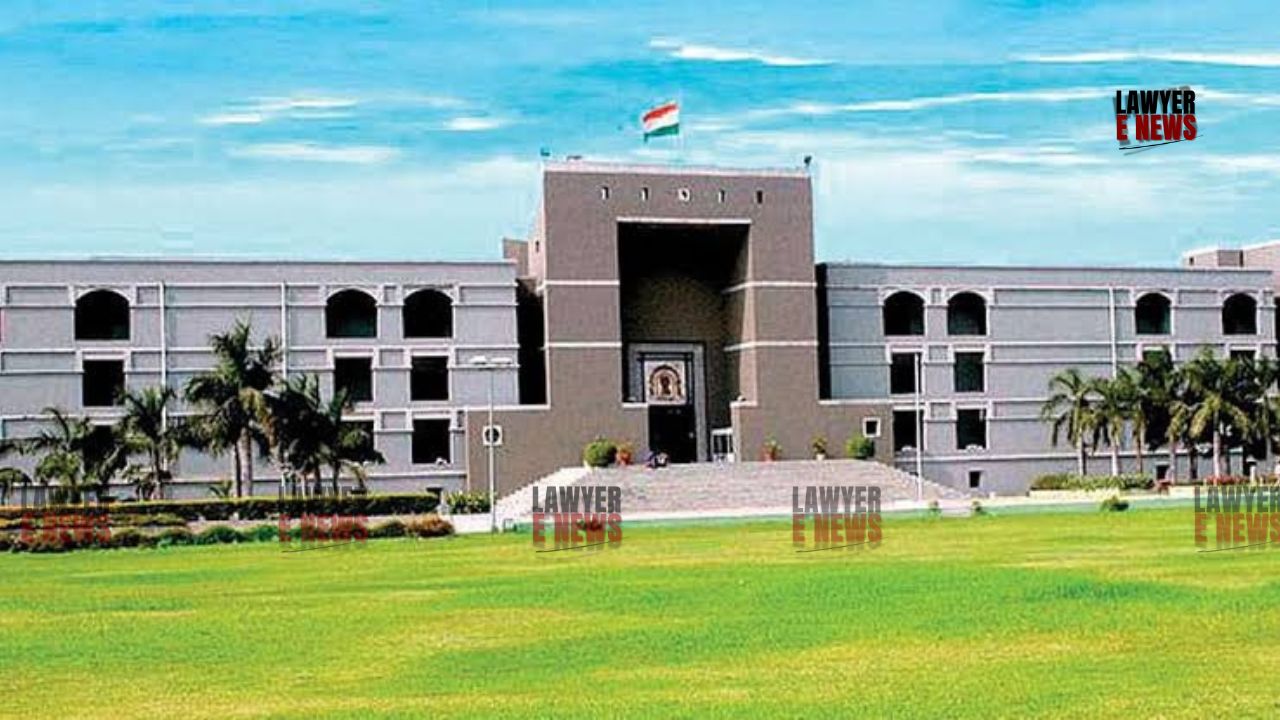-
by Admin
15 February 2026 5:35 AM



Gujarat High Court in Mukeshbhai Mohanlal Saragra v. State of Gujarat overturned the conviction of Mukeshbhai Saragra, who was sentenced under Section 302 of the Indian Penal Code for stabbing the deceased, Kantibhai Ramabhai. The court highlighted serious discrepancies in eyewitness accounts and inconsistencies between two dying declarations, leading to the acquittal.
The prosecution alleged that Mukeshbhai Saragra, along with co-accused, assaulted Kantibhai following a dispute. On the night of December 31, 2001, Kantibhai was stabbed by Mukeshbhai near a canal. He was later hospitalized, and after eleven days of treatment, succumbed to his injuries. Mukeshbhai was convicted of murder by the trial court based primarily on a dying declaration and circumstantial evidence, while the other accused were acquitted.
The key legal question was whether the dying declaration, which implicated the appellant, could be relied upon in light of the inconsistent statements made by the deceased at different times.
In his first statement, the deceased told the attending doctor that he had fallen from a terrace and injured himself, but in a subsequent dying declaration recorded by the Executive Magistrate, he claimed that Mukeshbhai had stabbed him. This contradiction raised doubts about the reliability of the dying declarations.
The defense also argued that the trial court erred in convicting Mukeshbhai while acquitting others based on the same evidence. The High Court agreed, ruling that the discrepancies in witness testimonies and the contradictory dying declarations weakened the prosecution's case.
Justice Divyesh A. Joshi noted that "the dying declarations do not inspire confidence" due to their contradictory nature. The court further observed that while dying declarations hold significant evidentiary value, they must be free from doubt. In this case, the inconsistencies between the two statements of the deceased created reasonable doubt about the guilt of the accused.
The court also criticized the lack of independent eyewitnesses, noting that all witnesses were family members of the deceased, and their testimonies contained significant contradictions.
Ultimately, the court concluded that the prosecution failed to establish a continuous chain of circumstantial evidence that unequivocally pointed to the guilt of the accused. Citing the principle of giving the benefit of doubt to the accused, the conviction was set aside, and Mukeshbhai Saragra was acquitted.
The Gujarat High Court’s ruling underscores the importance of consistency in evidence, particularly in cases involving dying declarations. This judgment reinforces the legal principle that when there is doubt, especially in serious offenses like murder, the benefit must go to the accused.
Date of Decision: September 23, 2024
Mukeshbhai Mohanlal Saragra v. State of Gujarat
